Most articles about NetSuite health checks recommend rigid timelines. Quarterly, biannual, or yearly reviews. But this one-size-fits-all approach ignores a fundamental truth: your NetSuite environment is unique, just like your business.
What if frequency wasn't determined by the calendar but by your organization's specific NetSuite lifecycle stage and velocity of change?
The Problem with Traditional Health Check Recommendations
Traditional advice focuses on uniform time intervals, missing these critical factors:
- Change velocity in your business operations
- The maturity stage of your NetSuite implementation
- Your customization complexity score
- The "invisible technical debt" accumulating in your system
- Your organization's risk tolerance profile
This flawed approach often results in either over-inspection (wasting resources) or dangerous under-maintenance (risking system failures and performance degradation).
The Five NetSuite Lifecycle Stages & Their Health Check Requirements
Rather than thinking in calendar terms, consider which stage your NetSuite implementation currently occupies:
1. Implementation aftercare stage (0-6 months post-go-live)
Recommended frequency: Every 4-6 weeks
Why: This critical period sees the highest risk of configuration drift and adoption failures. In our experience supporting implementation aftercare for companies like a major trading firm (similar to one of our clients who integrated Avalara with NetSuite), this intensive monitoring period caught and remediated 37% of potential system issues before they impacted business operations.
2. Stabilization stage (6-18 months)
Recommended frequency: Every 2-3 months
Why: During this phase, users begin customizing workflows, creating workarounds, and pushing the system in unexpected ways. The risk of "shadow IT" solutions emerges.
We've observed that health checks during this period typically identify 5-7 critical optimization opportunities that would otherwise remain hidden.
3. Enhancement stage (18 months-3 years)
Recommended frequency: Quarterly + after each major enhancement project
Why: As you begin implementing additional modules or significant customizations, your system complexity increases exponentially. Each enhancement creates ripple effects throughout your system that need validation.
Our cross-platform expertise gives us unique insight into these interdependencies that single-platform consultants often miss.
4. Maturity stage (3-5 years)
Recommended frequency: Biannually + trigger-based checks (see below)
Why: At this stage, your NetSuite instance has become a mature, stable environment, but complacency is dangerous. Biannual deep assessments maintain system integrity while allowing breathing room for normal operations.
5. Transformation stage (5+ years)
Recommended frequency: Annually + pre/post major business changes
Why: Long-term NetSuite implementations often accumulate significant technical debt and outdated configurations, even as new NetSuite features are released. Annual comprehensive reviews help identify modernization opportunities and alignment with current business processes.
Trigger-Based NetSuite Health Checks: The Early Warning System
Supplement your lifecycle-based schedule with trigger-based NetSuite health checks when specific events occur. Think of these triggers as your NetSuite's "check engine light" — indicators that a health check is needed regardless of your regular schedule:
1. Business structure changes
When your organization undergoes mergers, acquisitions, or adds new subsidiaries, your NetSuite configuration needs immediate review.
We recently worked with a retail distribution client whose post-acquisition integration created unexpected subsidiary hierarchy issues that affected financial consolidation. A targeted health check identified these issues before quarter-end, preventing significant reporting delays.
2. Performance degradation indicators
Watch for early warning signs like:
- Reports taking 30% longer to run than previous benchmarks
- Dashboard loading times exceeding 10 seconds
- Search results timing out more frequently
- Users reporting "spinning wheel" delays during routine tasks
- Batch jobs exceeding their normal processing windows
These symptoms often indicate underlying configuration issues that will worsen over time if not addressed.
3. NetSuite release readiness
Oracle NetSuite releases major updates twice yearly. Each release introduces features that may interact with your customizations in unexpected ways.
Schedule pre-release health checks 30 days before major releases to identify potential compatibility issues and post-release checks to verify everything is functioning properly and to evaluate which new features you should adopt.
4. Staff turnover and knowledge gaps
When turnover exceeds 15% in NetSuite-dependent roles, undocumented workarounds and processes may be lost with departing staff.
A focused health check should review user activity logs to identify and document these unofficial processes before institutional knowledge disappears completely.
5. Business process redesign
When reimagining business processes, a pre-implementation health check establishes whether your current configuration can support the new processes or requires modification.
One client in the healthcare sector discovered during a pre-implementation check that their NetSuite customizations were incompatible with their planned revenue recognition changes, saving them from a costly mid-project pivot.
6. Compliance requirement changes
New regulations like ASC 606, GDPR, or industry-specific compliance requirements often necessitate NetSuite configuration changes. A targeted health check ensures your system can produce the required documentation and enforce the necessary controls.
7. Growth threshold crossings
When transaction volume increases by 25% or more within a short period, or when your user count grows beyond certain thresholds (typically 50, 100, and 250 users), system optimizations may be required to maintain performance.
These growth milestones should automatically trigger health assessments.
Is a NetSuite Health Check Worth It?
Here's what our clients typically experience with adaptive NetSuite health check scheduling:
- 42% reduction in NetSuite-related support tickets.
- 27% improvement in month-end close times.
- Zero productivity loss during system transitions (compared to industry average of 3-5 business days of disruption).
- $15,000+ savings in avoided turnover costs through eliminating frustration-based attrition.
- 7-12% gain in overall system performance.
Not All Health Checks Are Created Equal
Not all health checks serve the same purpose. Understanding the different types allows you to apply the right level of scrutiny at the right time:
1. Quick pulse check (4-8 hours)
Think of this as a focused diagnostic examination looking at specific system indicators:
- System performance metrics analysis
- Error log pattern identification
- User adoption rate assessment
- Saved search efficiency evaluation
- Script performance monitoring
- Workflow bottleneck identification
A pulse check is ideal for rapidly identifying emerging issues before they impact operations. For instance, a quick pulse check for a real estate client revealed that a poorly structured saved search was causing significant system lag during month-end processing.
2. Targeted system review (2-3 days)
This deeper evaluation focuses on specific modules or customizations:
- In-depth analysis of targeted functional areas
- Review of custom script performance and logic
- Integration point stress testing
- Module-specific optimization recommendations
- User role and permission structure evaluation
For example, when a telecommunications client experienced slowdowns in their procurement process, a targeted review identified inefficient approval workflows that were creating unnecessary approval bottlenecks.
3. Comprehensive system assessment (1-2 weeks)
This complete system evaluation includes:
- Infrastructure assessment (performance, security, reliability)
- Configuration review across all modules
- Customization audit and optimization recommendations
- Process alignment analysis
- User experience evaluation
- Technical debt quantification
- Future roadmap recommendations
One wholesale distribution client's comprehensive assessment uncovered 17 critical optimization opportunities that, when implemented, reduced their month-end close time by 43%.
Each lifecycle stage requires different combinations of these assessment types.
The 3-2-1 Assessment Structure
Most organizations benefit from a structured approach we call the "3-2-1 Assessment Structure," which includes:
- 3 quick pulse checks per year: Scheduled at strategic intervals (often pre/post busy season and mid-year).
- 2 targeted system reviews annually: Focusing on the most business-critical aspects of your NetSuite implementation.
- 1 comprehensive assessment every 12-18 months: Providing a complete system-wide evaluation.
This balanced approach ensures comprehensive coverage while optimizing assessment costs.
How Stockton10 Delivers Health Checks Differently
Our approach leverages three unique strengths:
- Cross-platform ERP expertise: As the only Philippine team fluent in all major ERP systems, we identify issues and solutions that single-platform consultants miss. We've solved problems other providers couldn't even diagnose.
- Continuity of knowledge: With 91% staff retention, your health checks are performed by specialists who develop deep knowledge of your specific implementation rather than starting from square one each time, eliminating the productivity drag that typically accompanies consultant turnover.
- Quick Response Time: When a health check identifies critical issues, we provide immediate feedback and support if needed. A plan is created to ensure solutions are future-proof, guaranteeing long-term benefits for your system.
Creating Your Custom Health Check Schedule
The perfect health check schedule varies for each company. To find yours:
- Identify your current NetSuite lifecycle stage
- Measure how quickly your business changes (we can help with this)
- Determine how much risk your business can accept
- Assess how many technical issues have accumulated over time
With this information, we can create a custom health check plan that gives you the most value with minimal business disruption.
Moving Beyond the Calendar
The traditional calendar-based approach to NetSuite health checks is outdated and inefficient. By adopting this adaptive framework, your organization can ensure optimal system performance while maximizing the return on your NetSuite investment.
Rather than asking "how often should we schedule a health check," start asking "what's happening in our NetSuite ecosystem that should trigger our next assessment?" This paradigm shift transforms health checks from a rigid compliance exercise to a strategic tool for continuous improvement.
Would you like to know which NetSuite lifecycle stage your organization is currently in?
Our team can provide a complimentary assessment to determine your optimal health check cadence based on your specific scenario.
Book a call with Stockton10 today for the perfect assist.














